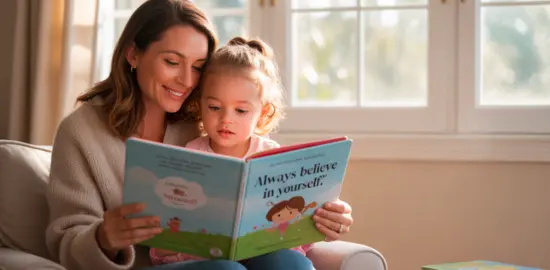Introduction to Parenting Leader
Go and complete The Parenting Leader 30-Day Challenge today and change the way you parent! Low on patience and high on drama? Here’s where to find practical parenting strategies, helpful ideas for day-to-day parenting responsibilities, and helpful advice from parenting professionals on how to improve your relationship with your child and provide the necessary love and support. Begin your way toward becoming a Parenting Leader now!

One of the greatest joys and least enviable tasks that people undertake is raising children. All mothers and fathers would like their kids to be optimistic, proactive, and successful members of society, but expecting can be quite daunting and challenging. Imagine if you had the possibility to change the way you parent your child in 30 days. This is the Parenting Leader 30-Day Challenge, a plan designed to get you there in 30 days with a series of simple, intentional steps for the way you parent.
This challenge is aimed at enabling you to gain the Parenting Leader attitude that entails loving correction and setting and enforcing acceptable standards towards the rearing of the child. So where are you in this exciting journey, are you ready to take that first step? Let’s dive in!
1. What Does It Mean to Be a Parenting Leader?
About parenting leaders: It does not mean that you are to be flawless or have all the answers to make your child’s life perfect. It’s not about Public Relations but supporting your child confidently, caringly and cohesively. A Parenting Leader:
- Always acts in the way that is expected from the child and embodies the sorts of change that the parent wants the child to have.
- Shares information professionally in order to gain the trust of the people.
- Provides structure but not rigidity; gives leeway without offering a whole lot of latitude.
- Involves people care and empathy as well as attentive listening.
- Appreciates challenges with tolerance and loyalty.
It is worth accepting all these qualities in order to provide your child with a favorable environment for development. The Parenting Leader 30-Day Challenge will guide you to develop such skills and turn into the best parental figure you can be.
2. The 30-Day Parenting Leader Challenge
This challenge is divided into daily activities meaning each day has a specific emphasis on a particular area of parenting. Every day, you will focus on a particular skill or particular attitude, step by step, building up your confidence and competence as a Parenting Leader.
2. 1 Week 1: Building Connection and Communication
Day 1: Start with Self-Reflection
S spend 10 minutes thinking about your current style of parenting. What are your strengths? What areas need improvement? It is important to write down your goals for the next 30 days. The first step on the ladder to becoming a Parenting Leader is introspection.
Day 2: Practice Active Listening
Engage your child in a ‘quality’ talk for fifteen minutes during the day. Forget about excuses, avoid blinking, and do not interrupt the interlocutor. Listening is an essential factor of communication and is most especially crucial for any Parenting Leader.
Day 3: Create a Daily Ritual
Create a specific time for a particular activity, such as parents taking their children to read a book before they retire to bed or parents presenting their day’s events while eating supper. The importance of the daily routines is to cement your connection to open a world of security for your child.
Day 4: Use Positive Reinforcement
Always reward your child by catching them being good and then going on to commend them. For example, “I like that you ate all your vegetables and didn’t make a fuss about it, do the same for your friend!” The rewards or incentives for attending healthy actions contribute to improvement in behavior and boost morale.
Day 5: Set Aside Quality Time
Spend 30 minutes doing something your child loves to do. It means that if you are playing a game, drawing, or just going for a walk, just do it and be aware of it. Utmost time is required to nurture a relationship as a Parenting Leader.
Day 6: Teach Emotional Vocabulary
Assist your child in understanding feelings and giving them a voice. Examples of how to work it in include – Stating that ‘It seems like you are stressed up’. Can you tell me why?” Teaching young children additional words for such emotions as happy, sad, or angry prevents or reduces such negative qualities in your child, and also, he/she gains emotional skills.
Day 7: Reflect on Progress
Review your first week. What went well? What challenges did you face? Adjust your approach as needed. Refle pride ought to be regarded without doubt as valuable, for it is a crucial way to learning and enhancement when it comes to attaining perfection as a Parenting Leader.

2. 2 Week 2: Setting Boundaries and Encouraging Independence
Day 8: Establish Clear Rules
Take your child to a chair and explain some rules of the family. Keep them simple and age-appropriate. Rules make a system so that your child will know what to expect when violating rules for punishment purposes.
Day 9: Be Consistent with Consequences
Ensure that when some rules are violated, there are consequences that should be enforced. Repetition helps to develop trust and responsibility thus the qualities of a Parenting Leader.
Day 10: Encourage Problem-Solving
Whenever your child is presented with a problem, then the best thing to do is to help them look for the solution to the problem on your own. Encouraging problem-solving fosters independence and critical thinking.
Day 11: Delegate Responsibilities
Give age-specific tasks to assist with teaching the child about responsibility and self-reliance. Assigning tasks keeps your child involved and appreciated, and the idea also allows for the development of the feeling of capability.
Day 12: Practice Patience
Before giving a respond to a frustrating situation, don’t make a hasty move, take a deep breath. Model calmness and self-control. One of the major unswerving of a Parenting Leader is the ability to wait patiently.
Day 13: Celebrate Effort, Not Just Results
Encourage your child to surrender to his/her efforts irrespective of the results of the intended work. Recognizing and praising effort is an effective way of promoting an attitude of growth and tenacity.
Day 14: Reflect on Progress
Figure out to what extent you were able to impose limits and foster autonomy. Make adjustments if necessary. It allows you to maintain the right perspective of your role as a Parenting Leader.

2. 3 Week 3: Strengthening Emotional Intelligence
Day 15: Model Empathy
Always avoid confrontation with anger while handling other people. Inform your child how and why you are being empathetic to them. Empathy role play lets your child learn the importance of being compassionate.
Day 16: Validate Feelings
Listen and accept the way that your kid feels without making moral judgments about him or her. Two, speak about it: “It is quite natural that you are angry/Afraid, it is all right to be angry at the moment.” Positive emotions bring trust and a feeling of emotional safety.
Day 17: Teach Conflict Resolution
Recreation of real-life situations and situations in which your child emerges as the winner through non-violence. Teaching conflict resolution as a part of their educational process enriches your child with the necessary skills for a lifetime.
Day 18: Practice Gratitude
Ask your child to begin a gratitude journal. By ending the day, writing down three things to be grateful for will create a process to be followed every day. Gratitude is easy to practice and always helps to build up an optimistic character.
Day 19: Encourage Mindfulness
Take 5 minutes to do an activity with your child like deep breathing or the body scan. Stress is kept at bay, and your child remains focused on what is happening at the moment.
Day 20: Share Your Feelings
Share your feelings, and how you deal with them In this way, you can help your partner understand how you can support him. This makes the feeling part become more natural and the relationship between you and the children, as a Parenting Leader, closer.
Day 21: Reflect on Progress
At the end of the activity, assess to what extent you have been able to promote your child’s level of emotional intelligence. The following two activities are crucial: Recognise and pass on the victories; and Consider where more progress is possible.

2. 4 Week 4: Only the Strong Survive
Day 22: Demonstrate Accountability
Be accountable, and then say sorry when you are wrong. Teaching your child how to take responsibility is what this is all about. A key characteristic of a Parenting Leader is accountability.
Day 23: Encourage a Growth Mindset
Praise effort and persistence. In real life, instead of saying “Well done,” you are encouraged to say phrases such as ‘You are improving with each practice.’ The importance of a growth mindset is that your child will be ready to walk through life’s hurdles and build something positive from failure.
Day 24: Teach Stress Management
Teach your child good coping mechanisms for stress, like exercising, writing a diary, or speaking to a friend. Evidently, stress management knowledge creates adaptation and positive mental health.
Day 25: Foster Curiosity
Take interest in your child’s way of curiosity and encourage them to learn more about anything they are interested in. Be curious together! Fostering curiosity promotes pro-learning and pro-create approach.
Day 26: Practice Self-Care
They should also learn to set an example in which personal self-care plays an important role. Developing self-care leads by example and also makes you physically present as a Parenting Leader.
Day 27: Reflect on Your Journey
What are the lessons learned to see how far have come in the achievement of your goal? What transformations have you observed of yourself and your child? Evaluation enables you to be grateful for accomplishment and to look forward and think about the next step.
Day 28: Set New Goals
Parent and child self-analysis on parenting areas of further development and setting new goals. Goals provide direction and help you stay on track in becoming the best Parenting Leader as possible as possible.
Day 29: Celebrate Your Achievements
If you have worked through the Steps as much as time allows, allow yourself some congratulations. This is true, so you should treat yourself and your child to something special. This way, you encourage positive behavior and don’t forget to mention that you are a team and therefore need to support each other.
Day 30: Commit to Lifelong Learning
Parenting is an ongoing journey. Stick with it, as it will change over time as the child develops. Education from birth right up to the college years must be a feature of every Parenting Leader.

Conclusion
It doesn’t matter that you are not perfect – being a Parenting Leader means making conscious decisions and providing nurturing encouragement for your child. In the last 30 days, you have embarked on a journey of enhancing the bond; marking your calendar, and managing emotions while setting up examples.
Of course, with this statement, the reader should not be left with the impression that their journey ends here. Parenthood is an ongoing process of development of care and guidance from the start to the due time and beyond. Through practicing the elements of Parenting Leadership, you and your child will come out to be better individuals.
So, what’s next? Teach parents you are communicating with about your experience, occasionally look at the challenge again if you need a reminder of how to approach the situation, and always remember to lead with kindness. With your support hand, we can build and bring up the coming generation of confident, kind, and tenacious people.
FAQs about Parenting Leader
Q1: What is leadership parenting?
Leadership parenting is a form of discipline that entails parents counseling, encouraging, and directing the positive character of their child while representing the child’s appropriate moral and ethical standards. A leader parent provides for a child, lets them be themselves, allows children to grow responsible, and creates an environment that is safe, structured, and productive. Leadership parenting refers to the process through which parents direct, motivate, and enable their children to improve their well-being and, at the same time, emulate the right character and integrity.
Q2: What are the 5 C’s in Parenting
The 5 C’s of parenting are; They are Consistency, Communication, Compassion, Confidence, and Connection can make parents bring up quite responsible children. Thus using all these principles, parents will be in a position to build structures of trust, discipline, and emotional security for their children. The five recognizable commands of ‘5C’s in the various effective parenting styles include the following: Consistency, Communication, Compassion, Confidence, and Connection.
Q3: How can I avoid being billed for my parenting leader subscription?
If you are a subscriber to a parenting leadership program, then visit the site of that program, or contact the program provider for a way to cancel the subscription. Sometimes you will have to enter your account and go to the subscription section, where you will be required to cancel the subscription to prevent further billing. If you are enrolled in a parenting leadership program, you need to check with the program to come across the procedure to delete.
Q4: What is parental leadership style?
As for family-related features, the leadership style of parents can be described as the type of behaviors that parents use to direct and facilitate the child’s development,t including authoritative, permissive, and democratic styles. All these styles influence how a child listens, gains confidence, and relates to his environment and ends up developing his or her future behavior and relationships. Parental management style, or parenting style, is defined here as the way in which parents provide direction and guidance to their child’s development, including decision-making, choice, and discipline, including authoritative, permissive, or democratic.
Q5: What is led parenting?
Child-centered parenting is a style where the child is involved in the decision-making process, with parents only directing the child. Promoting independence, problem-solving, and accountability among students is welcomed by this method, but parents have permissive authority over them. Shared parenting is a model where children’s decisions are the main ones, and parents only recommend rather than dictate.
Q6: What are the 4 parenting styles?
Authoritative, authoritarian, permissive, and uninvolved are the four major styles of parenting, and how they affect child development varies. Authoritative parents use strict and warm discipline, authoritarian parents are strict with low warmth, permissive parents have low strictness and low warmth, and uninvolved parents have low in both strictness and warmth. The four types of parenting are authoritative, authoritarian, permissive, and uninvolved, and act differently toward the development of children.
Q7: What is parent leadership training?
Parent leadership training is a program developed to assist parents in increasing skills in communication, discipline and other relevant skills in order for them to fully become leaders to their children. These programs offer approaches for raising confidence, overcoming adversities and making proper decisions in parents as well as in children. Parent leadership training is an intervention aimed at improving the parent’s ability on how to effectively show leadership to their children in matters of communication, discipline and management of emotional stress.



